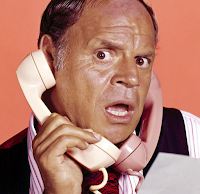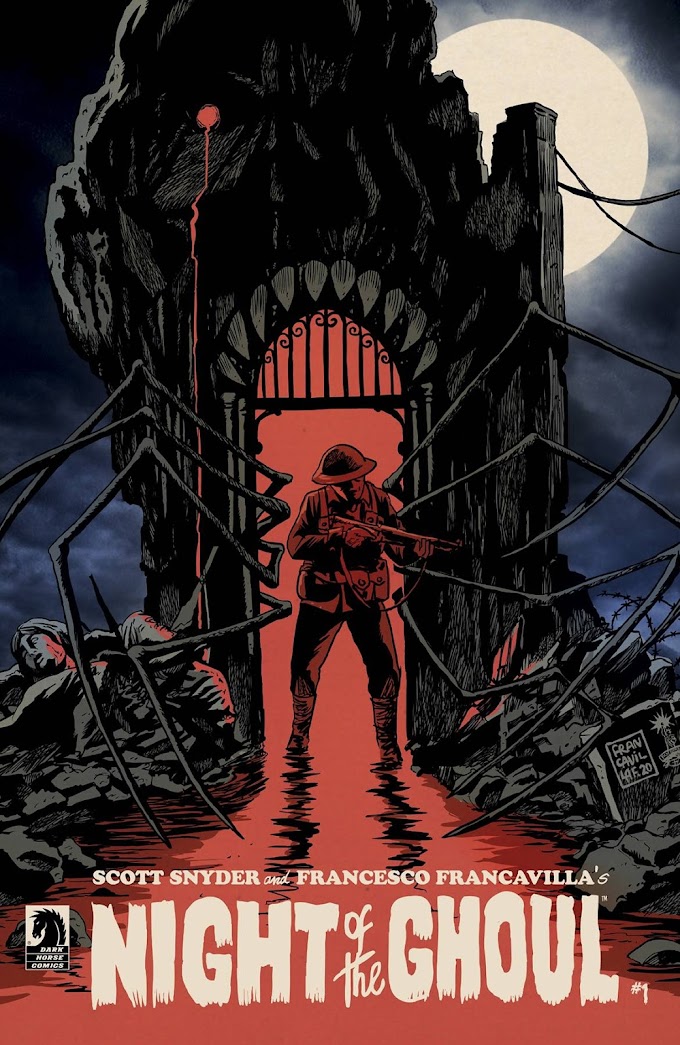- Rob M. continued to highlight non-fiction comics with Emi Gennis' Dyatlov Pass.
- Rob M. pointed out a current Humble Bundle offering that featured comics by Spike Trotman and others. (please note that that Humble Bundle has expired and already been replaced by a music-focused bundle.)
- Rob M. found that Boom Studios, Mark Waid and JG Jones' Strange Fruit left an awfully bitter taste in his mouth.
- James K. dug the supernatural crime in Wolf #1.
- Scott C. had an advance look at Hellboy In Hell #7.
- Rob M. suggested you attend the Artist Alley Comics Fest (which still may be running when you read this.)
- Rob. M. rounded out this week looking at Kendra Josie Kirkpatrick Unearths Truths About Egypt
** It was up briefly and then taken down before last week's Weekend Pattering could be published but it's back up now at The Comics Journal, Matt Seneca's takedown of Archie Comics #1.
The sad truth is that as big-minded as the folks behind Archie Comics have proved they can be over the past few years, the first issue of the new Archie reboot series (officially Archie volume 2 number 1) represents a staggering failure of imagination. Rather than shooting for the moon and creating something that might flop hard, but also might stand a chance of appealing to the millions of Cosmo and Elle readers* who still shop at the same newsstands the Riverdale gang inhabits the bottom shelves of, Goldwater & co. have become another episode in comics’ history of battered-spouse syndrome, rushing masochistically into the questionable embrace of the direct-sales market and Marvel/DC/Image readers on the lookout for the next thing that ign.com is gonna write about.Maybe the best comment after Seneca's is that of TCJ all-around critic R. Fiore:
Any change in a formula is a tacit admission that the formula doesn’t work anymore. But you know, it’s hard to believe that there haven’t been enough Archie comics in the world by now.And I am I the only one who finds it increasingly odd that this book came out the same week as Waid's Strange Fruit. Even odder is the "The Mirth of the Nation" banner on the cover of Archie #1 (see image above,) echoing D.W. Griffith's "The Birth of a Nation," probably unintentionally but still oddly problematic in 2015. You don't use a word like "mirth" with "nation" without having some kind of idea of what you're doing. But of course, we've seen this week that people don't know how to Google things to find out if they're about to have a very bad idea. Yes, the tagline "Mirth of the Nation" has been used for decades on Archie Comics but it seems very conspicuous in a book featuring mostly white characters being very white.
I read a copy of Archie #1 a few weeks ago and at best it was a serviceable comic. I've seen some reviews praising it as being an Archie version of "Saved By the Bell" and that means absolutely nothing to me for I am old. All I know is that even as an old man when "Saved By The Bell" was on, that show bugged the hell out of me. Actually seeing that comparison made is probably what solidified why I didn't like Mark Waid and Fiona Staples' Archie reboot because it seemed nothing like being a kid or a teenager should feel. It was all constructed and fake but isn't that a lot of Waid stories? He's one of those writers who gets his hands on a catchy hook and then just keeps on playing it until you're sick and tired of it. At least, that's what the past 20 years of Waid books have been to me.
And yet he's the once and future (and current) darling of Direct Market Comics which just baffles me. I haven't read Strange Fruit but almost everything that Waid does just feels so safe and careful to me. And that's what this comic was. Even the Life of Archie comics that recently followed the dual paths of him marrying Betty or Veronica took more risks in the storytelling than Waid wanted to.
** Comic Book Resources has an interview up with Jason Lutes about his Berlin series, one of the best comics of the past couple of decades that no one seems to pay any attention to anymore (including your's truly.) When I saw Berlin #19 in the comic shop a couple of weeks ago, I immediately had to pick it up even though I couldn't remember if I ever picked up #18 whenever that one came out.
** Paste Magazine asks what does the failure of mainstream comic book websites to cover the estimated success of Attack on Titan say about the comic industry?
Earlier this week, sites like Anime News Network translated a July 4 report from Kodansha which concluded that there were 2.5 million copies of Hajime Isayama’sAttack on Titan in print in English (nearly 45 million copies of those volumes in Japanese). The series is about the last bastion of humanity defending itself from naked, mindless giants who exist to eat people; it’s remained enormously successful at home and abroad. Though those reported 2.5 million copies are spread out over 15 volumes, at a price tag of $10.99—with significantly less brand recognition—and with a huge presence in the book marketplace (where units are usually returnable and customers are usually not regular comics readers), why didn’t Attack receive the same aplomb as the juked stats of Star Wars #1. Why did nearly every niche site of note that traffics in comics-related content (Comics Beat and Comic Book Resources published a combined four sentences as this article was written; ICv2 devoted an article to it) completely ignore one story while devoting multiple articles to a comparable one?At almost the same time, Multiversity has a poll up and running asking about your manga reading habits? (Here's only a snapshot of the poll. Go to the Multiversity website to actually participate in it.)
At this time, nearly a quarter of those who answered said "I have no interest in reading manga" while another 13% answered "I read some manga and/or watched anime in my youth, but haven't had much interest in reading manga since." At least we can take some consolation that 15% also don't read manga but think that there are some series that they are interested in checking out.
I think that right there is the answer to Paste's question. Pretty much 50% of the poll's participants don't read manga with a majority of those people saying that they're just not that interested in it. And that's on a fairly mainstream comic book website who from all indications seems interested in comics and not comic-based movies and tv shows.
For the record, I answered "I am currently keeping up with a few series, but only in paperbacks." That's been my basic manga modus operandi for the past few years. Like any other comics, once I find a manga creator I like, I'll keep on reading their stuff.
It's not surprising that in 2015 we still view manga as something different from comics. When I see how much kid's anime that my son enjoys, I'd be surprised in 5-10 years if he views manga as something exotic and non-comics but I don't know if I should be. In one way or another, I've been reading manga since the mid 1980s but it's still something I have to go out of my way to get. Since it never took off in the direct market like it did in Borders or Barnes and Nobles, I hardly ever think to add a manga series to my pull list at the comic shop. I'll get it at the bookstore or Amazon if it's something that I want.
So why aren't comic websites covering the sales of Attack on Titan and what does it say, if anything? Well, it's not a direct market success so it's not a success that sites like Newsarama or CBR are going to be that interested in because it doesn't generate hits. Pure and simple. Manga is incredibly popular still but those sites' audiences don't care, as seen by Multiversity's poll. And Paste may be loading the question because that's all it says. Websites like those that it's questioning is shaped as much by their audiences than anything else unlike us here at Panel Patter who (not to toot our own horn) write about the things which interest us and then wonder why they don't get the hits (but that's a rant for another time.)
It's fantastic that Attack on Titan is a huge seller. That's great for the manga business whose rumors of its death have been greatly exaggerated. But to wonder why comic fans aren't jumping up and down at that news is kind of self-serving. When has the American comic industry ever reacted to manga other than attempting to co-opt it so we'd get manga versions of the X-Men? That isn't interest; that's just trying to jump on the bandwagon.








![Sweat and Soap [Ase to Sekken] by Kintetsu Yamada](https://blogger.googleusercontent.com/img/b/R29vZ2xl/AVvXsEgMnQltxjWqGS1_duhCp9Er1a0NbALuSFrqvjaV4_PjN_w67xCGghYt-l0qKyqTH7Ei7gbq_mxVq8aPAuOiyaArwAMLJWhpGmOYaARUBnwvjmv2-ZIe20m_zR5CvKnPdI6US_AuOnmi3gSX/w680/57525895-BA7E-4EF8-9FE4-89F9C164E1A4.jpeg)

